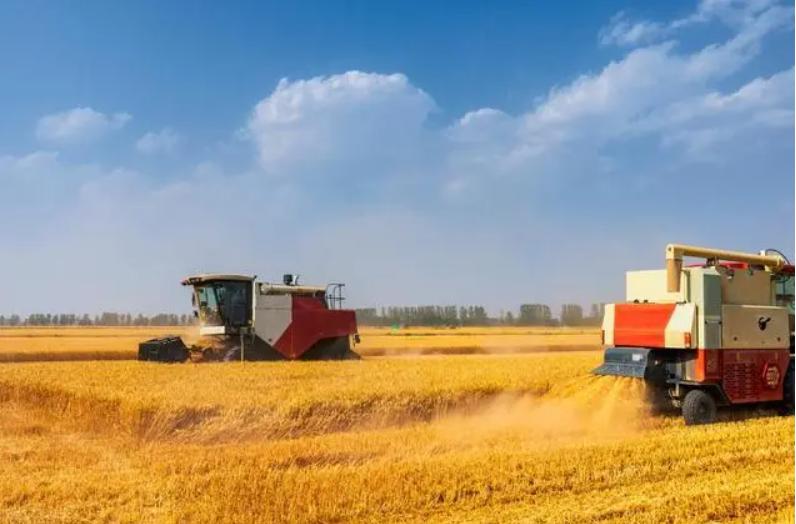
American agriculture occupies an important position in the global agricultural trade, and its agricultural exports are huge, which has a profound impact on the pattern of global agricultural trade. Now, U.S. agriculture is entering a challenging period that is eroding farm profitability. According to the latest data from the US Department of Agriculture, the US farm net income suffered a 4% decline in 2024, to a low of $141 billion, and this figure has experienced a significant contraction of about 20% the previous year. This data reflects the pressures and challenges facing the U.S. agricultural economy.
As the world's main food exporter, the impact of the United States is also complex and multi-faceted. The first is the impact on American agriculture, the decline in agricultural net income directly leads to the reduction of farmers' income, which will have a negative impact on farmers' living standards and agricultural production enthusiasm. Farmers may face greater economic pressure to find new sources of income or reduce production costs to make ends meet. The decline in income may lead farmers to invest less in agriculture, including less in new equipment, new technologies and new varieties. This will have an adverse impact on the long-term development and innovation capacity of agriculture, which may lead to reduced efficiency and competitiveness of agricultural production. Faced with the pressure of declining income, farmers may adjust the structure of agricultural industries, reducing the cultivation of some low-efficiency or high-risk crops, and planting more efficient or more stable crops. This will have an impact on supply and demand and prices in the agricultural market.
The second is the impact on the global food market, the United States is one of the world's largest food exporters, and its agricultural economy will directly affect the supply and price of the global food market. A reduction in U.S. farm production would strain global food supplies and push up prices. On the other hand, if U.S. agricultural production increases, it will increase the global food supply and help stabilize or lower food prices. If the United States reduces food exports, it will cause other food exporters to increase their market share, thereby changing the flow and distribution of global food trade. At the same time, as one of the guardians of global food security, the stable development of its agricultural economy is of great significance for ensuring global food security. If U.S. agricultural production is reduced or exports are restricted, the global food supply will be insufficient, which will threaten global food security. The United States is the world leader in the field of agricultural technology, and the unstable development of its agricultural economy will not be conducive to promoting the spread and cooperation of global agricultural technology.
The third is the impact on the global economy. The United States is an important food producer and exporter in the world, and the decline in its net agricultural income may lead to changes in the supply and demand relationship of the global food market, affecting the volatility of food prices, and thus affecting economic progress. The decline in net farm income in the United States could affect its agricultural trade relations with other countries, thereby changing the pattern of global agricultural trade. Some countries may look for new sources of agricultural supplies to reduce their dependence on U.S. agricultural products.
Fourth, the impact on international trade rules. In order to reduce the risks faced by farmers, the government may further improve the agricultural insurance policy to provide better risk protection for farmers. At the same time, in order to improve the efficiency and competitiveness of agricultural production, the government is likely to increase support for agricultural technological innovation and encourage farmers to adopt new technologies and new varieties. The United States occupies an important position in global agricultural trade, and the direction of its agricultural economy will affect the formulation and change of international trade rules. If the United States increases agricultural production and expands exports, it will strengthen its voice and influence in global agricultural trade, thus promoting the formulation and implementation of more fair and reasonable international trade rules.
In summary, the sharp decline in net farm income in the United States has far-reaching implications, and in order to address these challenges, governments, businesses, and farmers need to work together to strengthen policy support, technological innovation, and market expansion.

On January 4th local time, Trump warned India that if it does not limit its purchase of Russian oil, the United States will continue to raise tariffs on Indian products. Trump's latest warning sent shockwaves through the Indian financial market in just one day.
On January 4th local time, Trump warned India that if it do…
In October 2025, the US trade deficit narrowed unexpectedly…
According to the British media CoinJournal, recently, due t…
In January 2026, US President Trump once again set his sigh…
Europe is facing a crucial strategic choice: In the face of…
On New Year's Day 2026, BMW China announced a "systematic v…